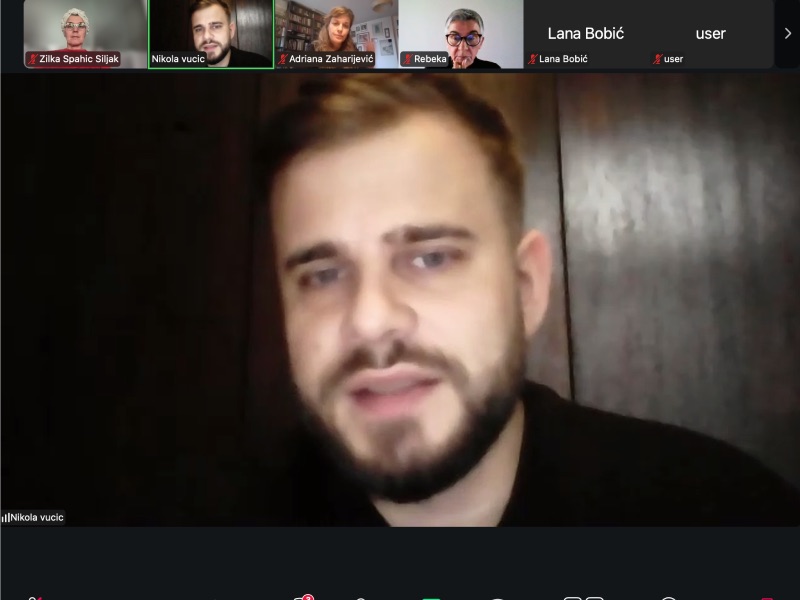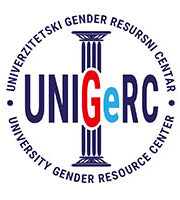The TPO Foundation and the UNIGEM network of universities from BiH, Croatia, Serbia, and Montenegro held the first online promotion of the translation of Judith Butler’s Who’s Afraid of Gender? on November 26, 2025. The event was moderated by Nikola Vučić, and the speakers Adriana Zaharijević, Jadranka Rebeka Anić, and Jasmina Husanović highlighted that the book is an invitation to a collective struggle against the moral panic and fear spread through narratives about so-called “gender ideology.”
LINK Video promotion: https://youtu.be/MDeSK2KAjHA
Adriana Zaharijević stressed that readers from post-Yugoslav societies already recognize the fears, cultural panics, and political manipulations that Butler describes, as these dynamics have marked our experience of war, transition, and rising nationalism. According to her, the book helps us understand these processes more deeply and to become dialogue partners for those who have not lived through such experiences. She also noted that even societies considered “cradles of democracy” are not necessarily moving toward improvement, making theoretical tools for understanding fear and moral panic more necessary than ever.


Jadranka Rebeka Anić spoke from a theological perspective about how fear of gender is shaped through fundamentalist interpretations of religious texts. She emphasized that literal and selective readings of the Bible are not signs of strong faith but of frightened and manipulated faith, and that such interpretations contradict contemporary theological hermeneutics, which insist on dialogue with science and philosophy. She pointed out that anti-gender discourse caricatures gender studies as a monolithic “danger,” much like fundamentalist interpretations reduce the richness of theological traditions to narrow and exclusionary frameworks. In this sense, she argued, feminist theology can be an important ally to gender studies in resisting manipulation and false certainties.
Jasmina Husanović discussed anti-intellectualism as a deeply rooted mechanism in post-Yugoslav societies, a mechanism that produces fear, suppresses critical thinking, and enables the political use of ignorance. Refusing to read theory, she argued, is not mere laziness but a political act: a way to avoid debate, uphold a single “truth,” and portray any questioning as a threat. According to Husanović, anti-gender discourse constructs “gender” as a phantasmatic enemy and thus produces exactly what it claims to fear—a monolithic threat that must be controlled. In this process, right-wing movements prepare the ground for authoritarian orders under the guise of fighting “indoctrination.” Education for critical thinking and feminist work are therefore essential for creating space for different distributions of power, social energy, and political imagination. In the concluding remarks, Jasmin Hasanović emphasized the importance of clearly naming the ideologies that truly produce violence and destruction, nationalism, cannibalistic capitalism, fascism, and patriarchy. In a time of global uncertainty, ecological crisis, and war, it is vital to restore faith in the possibility of another world in which resources and freedoms do not belong to a privileged minority.
The promotion opened space for an important regional discussion on how fears surrounding gender conceal deeper mechanisms of social control, and how feminist, theological, and critical theories can serve as shared tools for resistance and the creation of more just communities.



